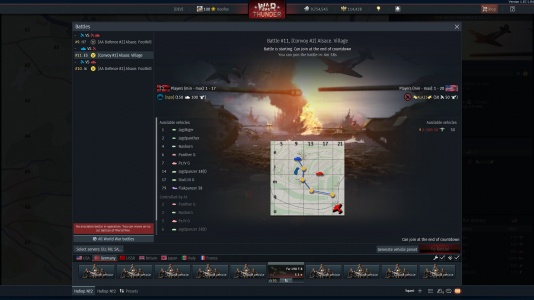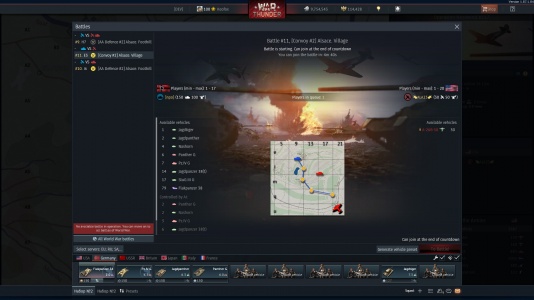World War: Battle Respawn Rules
| This article only covers the rules of distribution and use of combat vehicles in World War battles. You can learn more about the World War mode in the main article. |
Unit Use
At the start of a battle, each combatant receives 1-3 combat units, which are randomly selected from the pool. The number of units received is determined by the total number and variety of combat units in the army, while the chance of receiving a particular vehicle solely depends on how many of these units there are in the pool.
If one of the issued combat units is destroyed during the battle, it gets replaced by another random vehicle from the pool on condition that the army still has spare combat units left.
Preparation for battle
Before the battle, the participant will always receive one fully researched vehicle from each vehicle group of the army and will be able to put them into their vehicle slots. If the player has their own suitable vehicles for the battle, that can be used instead. You can take one vehicle from each vehicle group represented in the army into the battle.
You can automatically place all your vehicles eligible for battle in the vehicle slots by pressing “Generate vehicle preset”.
Over the course of a battle, players earn Spawn Points, which allow them to use the units placed in their vehicle slots even if they didn’t receive the said vehicles during the distribution stage.
| Unspent spawn points in World War are carried over to next battle. |
Air Reinforcements
The commander can call in for air reinforcements if there are no allied air units in battle.
The distribution of the newly arrived air units follows the standard rule of replacing the next aircraft lost.





